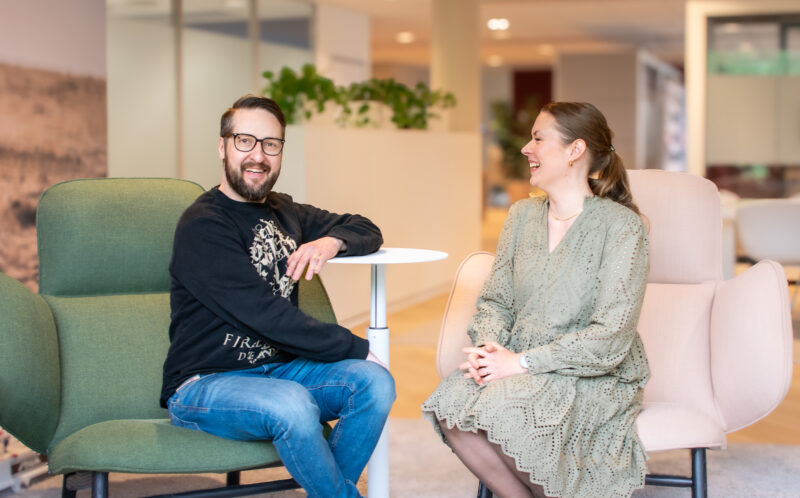Remember these summer hacks even after the summer holidays
Summer holidays are a time to relax, enjoy, and try new things – but the same factors build well-being all year round. Building a sustainable work-life requires both the employee’s own activity and the support of the employer, says Sofigate’s Anna de Torres.
For many people, the summer holidays are the best time of the year. During the holiday weeks, both mind and body rest with family, friends and hobbies and recharge their batteries for the autumn.
However, the recovery that took place during the holidays is of little help if the IT worker continues to burn the candle at both ends in the autumn. Therefore, even after the summer, it is worth bearing in mind the following principles that support a sustainable work life and well-being:
- Take breaks
Summer holidays provide an opportunity to recover from the stresses and strains of work, both mentally and physically. But it’s not enough: it’s important to remember to recover in your day-to-day work too.
Breaks are an important source of mental and physical well-being and should be scheduled throughout the working day. For example, instead of a full hour, it’s a good idea to schedule meetings for 45 minutes, so that you can take a short break before the next meeting starts. It’s not worth being stuck at the monitor for hours on end, and you can for example set yourself an alarm to remind about taking regular breaks.
- Manage your calendar
One of the best things about summer is the flexibility of your schedule. If it rains today, you can still make your planned trip to the market tomorrow. There’s even time for guests. And sometimes it’s good to do nothing at all.
It’s also good not to have a tightly packed work calendar, but to have room for thought and unexpected twists and turns – and maybe sometimes even for remote work from home, the cottage, or even abroad. This is only possible if you take control of your time and make time in your calendar for independent work. The right sequencing of work also helps you to stretch yourself flexibly when deadlines demand it.
- Learn new things
A holiday is a great way to start learning fly fishing or weaving rugs, but it’s also worthwhile to seek out new experiences and challenges in your own job all year round. Learning new things is a key part of a growth mindset and an important motivator at work.
- Meet people
There are many good things about hybrid work, as long as you remember to meet people face to face too. On holiday, you can spend time with family and friends without a specific agenda, and sometimes you should try to do the same at work. Recreational days and get-togethers offer opportunities to spend time together, but sometimes it’s good to just have lunch with your team and catch up.
- Do things that matter to you
In summer, we tend to do things that are meaningful to us, whether it’s sailing, hiking, or gardening. Work can’t and doesn’t have to be all beer and skittles, but there have to be things in the regular work routine that give it meaning.
No one can do a job without a sense of importance or meaning. If this is the case, it is worth talking to your supervisor, adjusting your responsibilities and seeking out things that are meaningful to you.
Holistic well-being is built together
Well-being cannot depend on the employee’s own initiative alone, but the employer, supervisors and the whole work community must support the building of a sustainable working life. Meaningful, varied work tasks that support personal professional development are an important factor in wellbeing and job satisfaction. The workload must also be balanced with the time available.
At Sofigate, we have put people and their wellbeing at the heart of our corporate responsibility strategy, guided in particular by the following tenets:
- Value every employee as they are
A psychologically safe, diverse, equal, and inclusive working environment gives every employee the opportunity to work and develop from their own starting point. This requires the support of the whole work community. It is particularly important to develop management practices and supervisory work based on respect for the individual and their characteristics. Training offered to employees also supports each employee in developing their personal skills and abilities in line with their individual goals.
- Provide support for mental well-being
Information work is often consuming and therefore requires employers to ensure the well-being of their employees. A responsible employer can offer a comprehensive range of services and coaching to support well-being, whether it be physical or especially mental.
- Support well-being with the right workspaces
In hybrid work, the challenge is to find a balance between different, often conflicting objectives – concentration, ergonomics, teamwork, meeting people. Sofigate’s new premises in Helsinki in autumn aim to create an environment that not only allows people to work efficiently, but also to combine work and everyday life in a flexible way and to meet others.
- Take care of well-being throughout all seasons
Employee well-being is essentially a strategic objective that also contributes to the achievement of the organisation’s objectives. It can therefore not be about individual actions or projects, but about a core value that lies at the heart of a company’s culture. The well-being of employees must be addressed in a long-term and planned manner, in a variety of ways, throughout the entire year.
Read more:
Responsibility in the technology sector starts with people
Why soft values are hard values – and why people-centred management benefits the customer
Author
Anna de Torres is Sofigate’s Head of Communications and People. In addition to HR, she has worked in communications, marketing and business strategy, and studied positive psychology. Anna is passionate about helping and supporting individuals and organisations to achieve their best, fostering good team spirit and a growth mindset.


